|
11th September 2021 The first game of the first Wogglecon for me was Space Cadet. I wish I hadn't made those Star Trek references in other games, because I could really do with one here! Caveat: I'm not going to blog about Space Cadet in as much detail as other games, otherwise I'd be here all week! Space Cadets is a 3-6 player co-operative game where players take on the roles of the bridge crew commanding a starship as they go on various missions. There are 9 different stations on the bridge which must be manned, thus players will have 1-3 stations they will be responsible for, depending on the number of players. What's in a game?
The smaller tiles and tokens are fairly sturdy, but the larger boards and tiles, particularly the map tiles feel quite thin and flimsy, and might prone to warping (Sic.), it's not a deal breaker though. There's little art to speak off and it's mostly functional. The games iconography is clear and understandable. How's it play? At the start of the game, players will be given a mission with certain objectives to complete. They will spend rounds exploring quadrants of the galaxy by turning over map tiles, encountering obstacles that need navigating and enemies that need vanquishing in the pursuit of their mission. Space Cadets is a real time game but that's not to say that all the players act at the same time. The game is broken down into 9 stages per round, although this has nothing to do with the number of stations in the game. The stages are as follows.
The game also includes a countdown mechanic in the form of a nemesis ship, which after a certain time will appear and hound the players. The nemesis ship cannot be destroyed. Endgame Players continue on their mission until they collectively complete or fail their objectives, additionally, their starship may explode, which as you may imagine can be considered a loss. Overall
Space Cadets is without a doubt a hugely ambitious co-operative game. It works hard to evoke the spirit of the TV shows it attempts to simulate. During play, there were moments when the players were naturally talking about how they needed energy diverted to their station, or how they'd achieved lock on an enemy ship or torpedoes were loaded. It sounded like a sci-fi TV show. This was pretty awesome. Players will collectively need to identify and prioritize dangers as well as balance managing these risks with working towards their goals. They'll need to decide which stations need energy the most, it's very hard to power up all systems at the same time and of course, they'll need to play their minigames and all of this needs to be done in real time! It's also something of a peculiar experience, since most players will be concentrating on their own minigames, they won't spend much time paying attention to what other players are doing - even though a lot of the game's mechanics are interlinked. There's a lot of clever gameplay going here. Having said that; I can't really recommend Space Cadets to casual players or the casual group. While the individual games are not complex, there are 9 of them! Taking 2 minutes to explain each game takes 18 minutes add a minute of of questions for each game and that's now 27 minutes, add in explaining how the enemy ships work and setting up and you're looking at close to 45 minutes of setup, maybe more! However, if you've got a group of dedicated players who are all willing to commit to learning the game and playing it on regular basis, then Space Cadets will probably be a great experience.
0 Comments
Leave a Reply. |
AuthorI play, I paint. Archives
March 2024
Categories
All
|

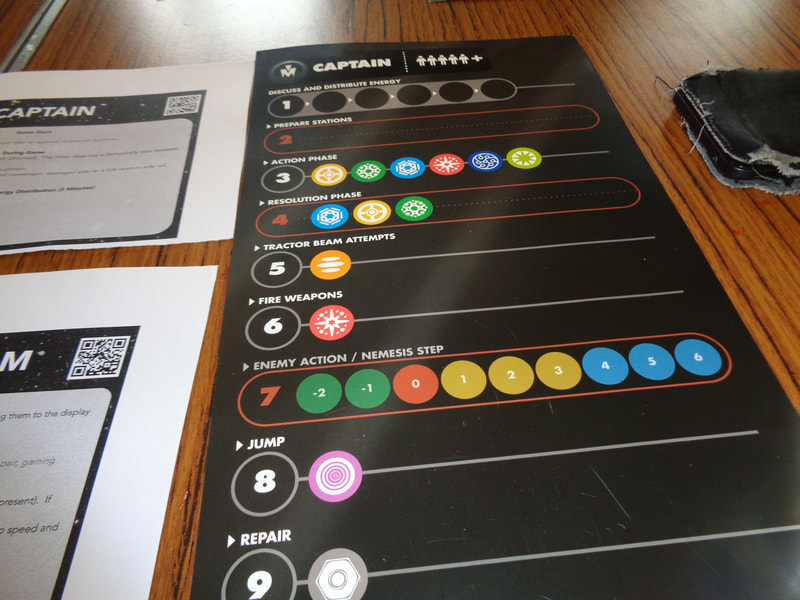
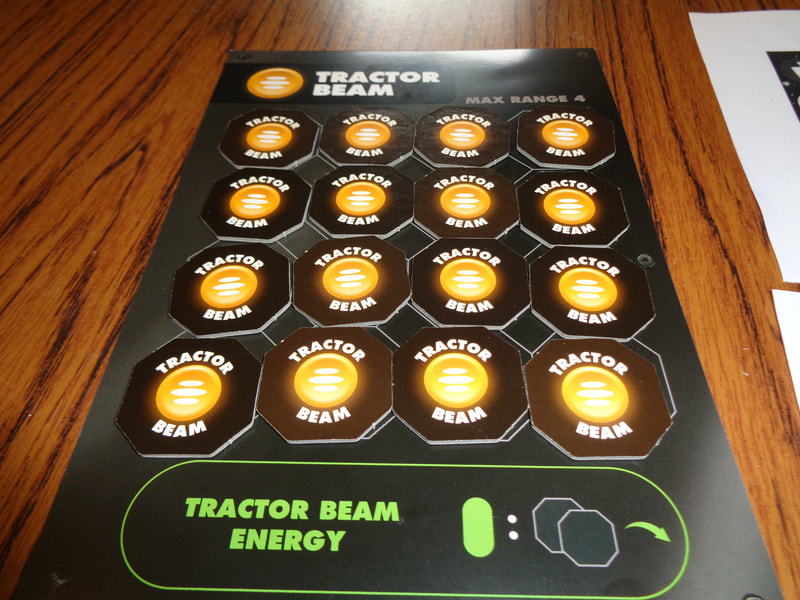
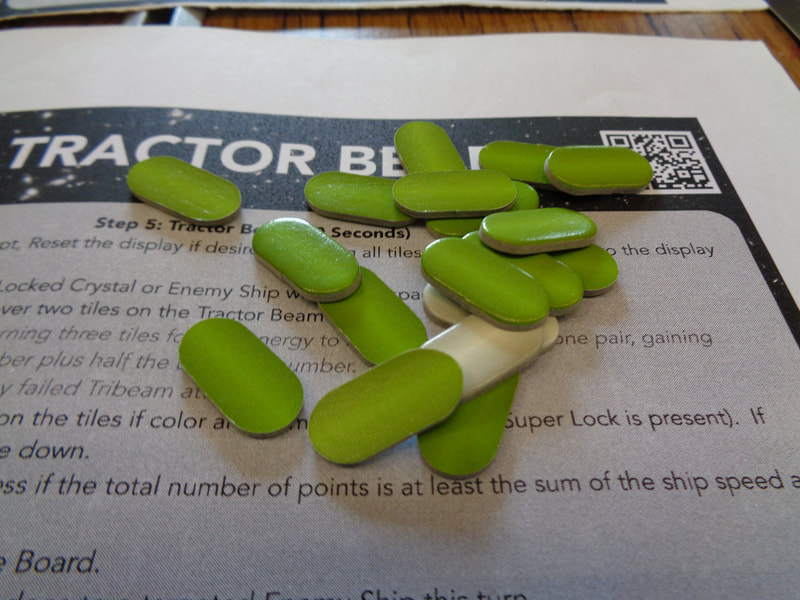
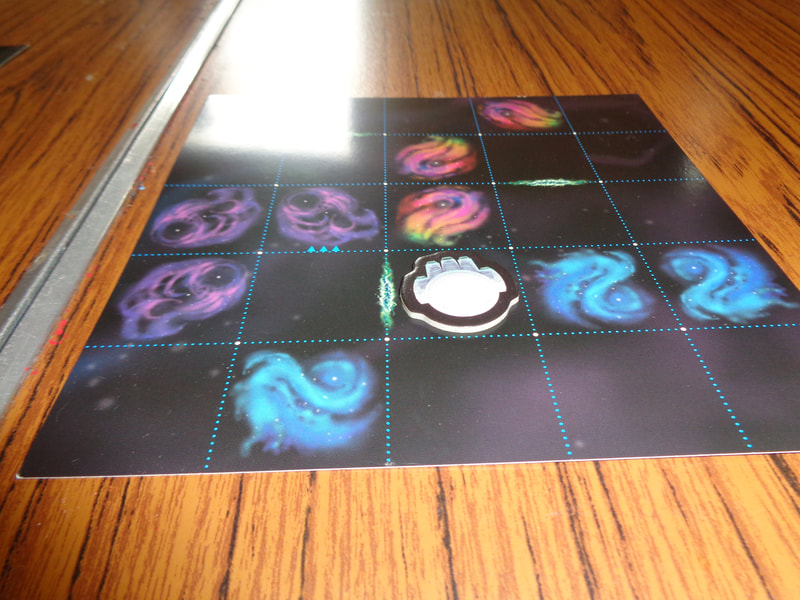
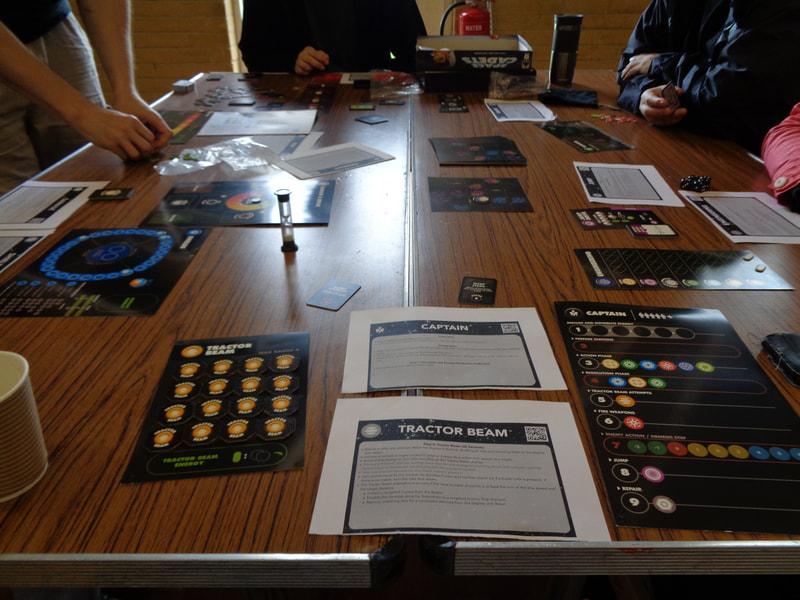
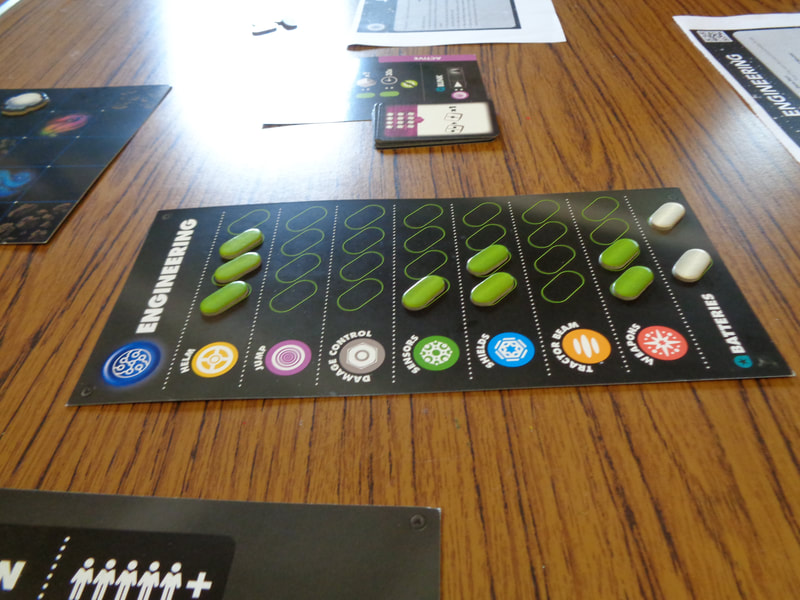
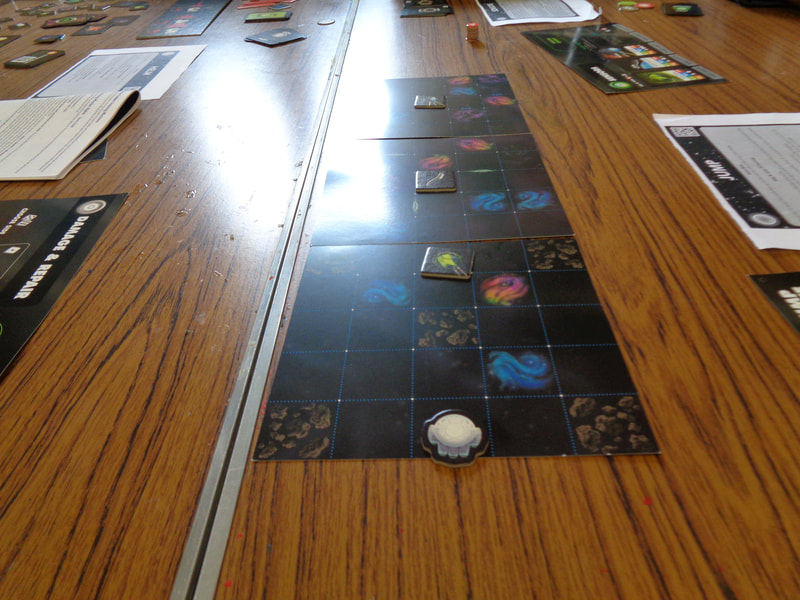
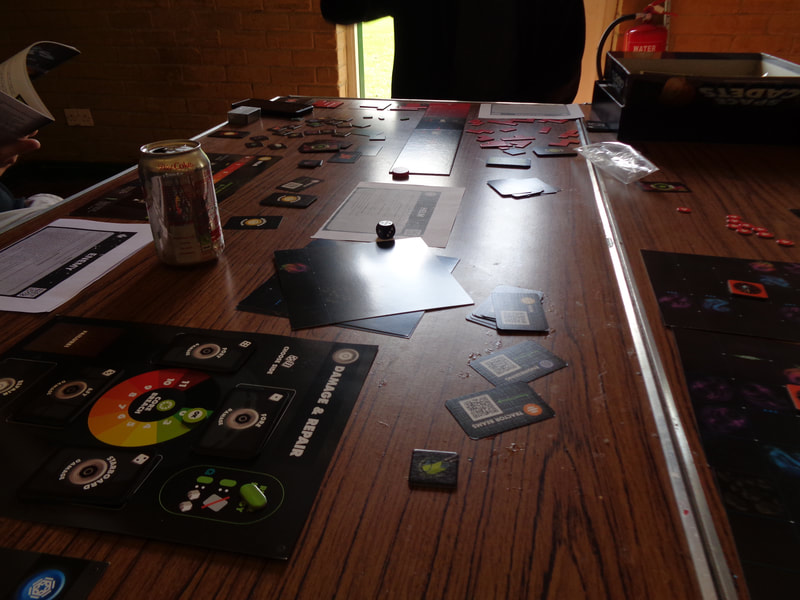
 RSS Feed
RSS Feed
